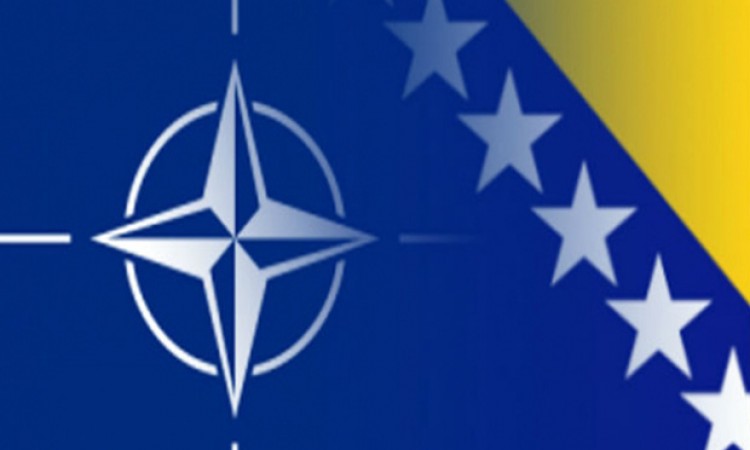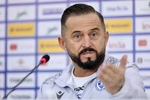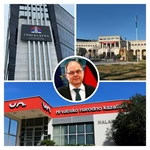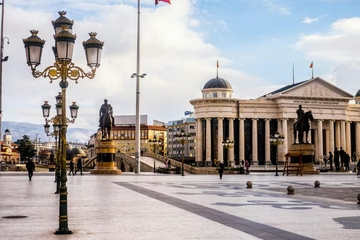
NATO and the OSCE said on Sunday that Bosnia has only one army and that statements made by the Bosnian Serb Presidency member who called that a mistake were “unacceptable.”
Bosnian Serb leader Milorad Dodik, who is currently the Chairman of the tripartite Presidency, spoke at an event organised to mark the (wartime) Army of Republika Srpska (RS) and the Third Infantry Regiment in the northwestern city of Banja Luka on Sunday and urged the Regiment, which is formally part of Bosnia’s Armed Forces, to wear the uniforms of the Army of RS at the ceremony next year.
The Army of Republika Srpska is the wartime army of the Serb-dominated part of the country which fought against Bosniak and Croat forces. It disappeared when Bosnia’s leaders decided to melt all armed forces in Bosnia into one.
With the recent revival of the idea to divide Bosnia along ethnic lines, Bosnian Serb leader Milorad Dodik is now challenging the country’s unified armed force.
The Third Infantry Regiment’s “supreme command is in Banja Luka (the administrative centre of the RS),” Dodik said, adding that the army of the RS “lives in hearts and souls of the Serbs” and that the Third Infantry Regiment’s members “will always defend the freedom of the RS and its people.”
Bosnia’s Law on Defence was enacted unanimously in the country’s Parliament by the ruling parties, said the NATO HQ in Sarajevo in a press statement.
“Ever since its establishment, the Ministry of Defence and Armed Forces of Bosnia and Herzegovina have worked hard on the complex tasks of building a single military force, developing the capabilities to operate with NATO forces and to provide assistance to civil authorities in case of natural disasters,” it said.
The Alliance remains committed to supporting defence and security reforms in the country and advising authorities “on tasks within the BiH-NATO Partnership for Peace Program,” it added.
The Organisation for Security and Cooperation in Europe (OSCE) also said the structure of the Armed Forces today is the result of a unanimous decision, adding that it “has arguably been the most significant and successful reform since the end of the conflict.”
“Inflammatory and divisive rhetoric on any topic, but particularly this one, is both out of place and unacceptable in modern BiH (Bosnia),” an OSCE press release said.
The Organisation said that together with “all sides involved in the 1990s conflict” it has “worked hard to strengthen the confidence and security-building measures which will ensure lasting peace” in the country.
“The Mission facilitated dialogue between the parties but ultimately it was the political and military leadership in BiH that agreed to merge three armies into a single, modern Armed Forces, capable not only of protecting the peace in BiH (Bosnia and Herzegovina) but of offering assistance to other peacekeeping missions around the globe,” it said.
The Prime Minister (in Bosnia officially called the Chairman of the Council of Ministers), Denis Zvizdic, said that Dodik’s call to the soldiers “represents an open call for disintegration of Bosnia’s Armed Forces which are the most important guarantee for peace” and the “best example” of successful internal integration in the country.
The best response to Dodik’s “dangerous and warmongering messages and threats” is strengthening state institutions, adequate actions by the judiciary and insisting on the rule of law, Zvizdic said.
He also said that Bosnia should send its Annual National Programme (ANP) in order to activate its Membership Action Plan (MAP), which lawmakers from Dodik’s party are against.
“EU and NATO integrations represent “the two most important goals” of Bosnia’s foreign policy, he said.
“We expect adequate responses by all representatives and institutions of the EU and the international community so that these ruthless provocations are publicly condemned and permanently stopped and the processes of cooperation, peace and stability in Bosnia and Herzegovina and the entire region are strengthened,” he concluded.
Kakvo je tvoje mišljenje o ovome?
Učestvuj u diskusiji ili pročitaj komentare





 Srbija
Srbija
 Hrvatska
Hrvatska
 Slovenija
Slovenija



























































